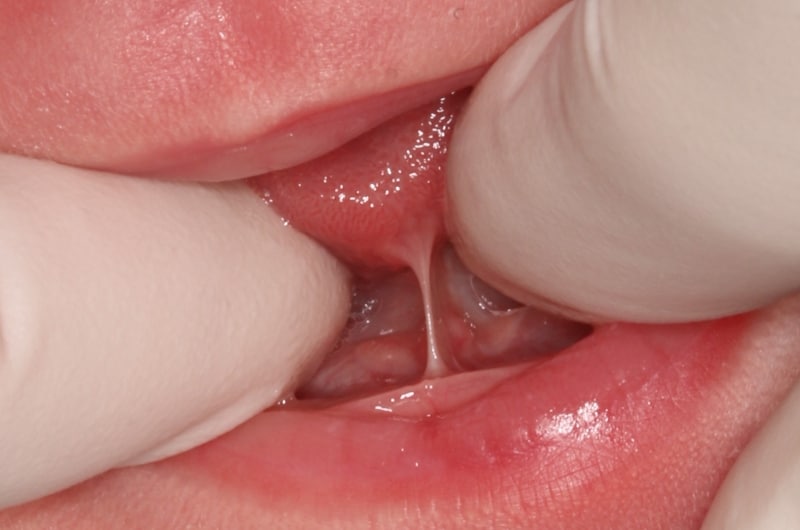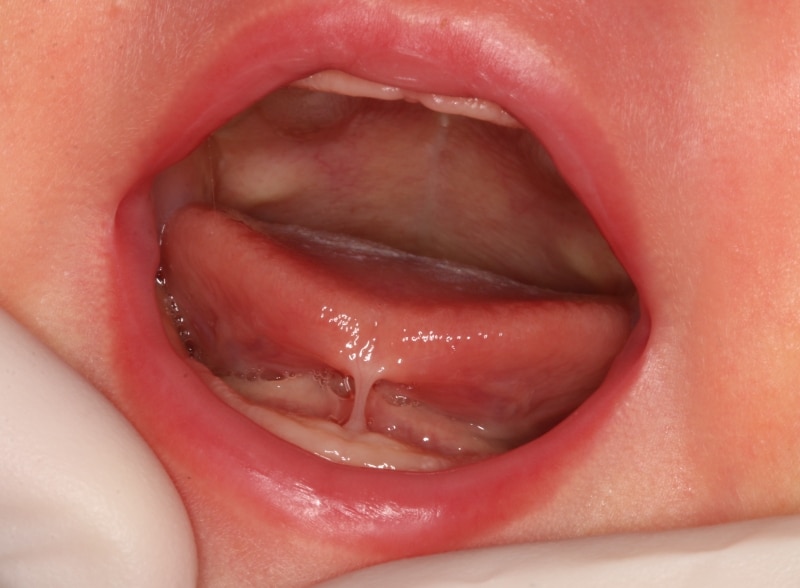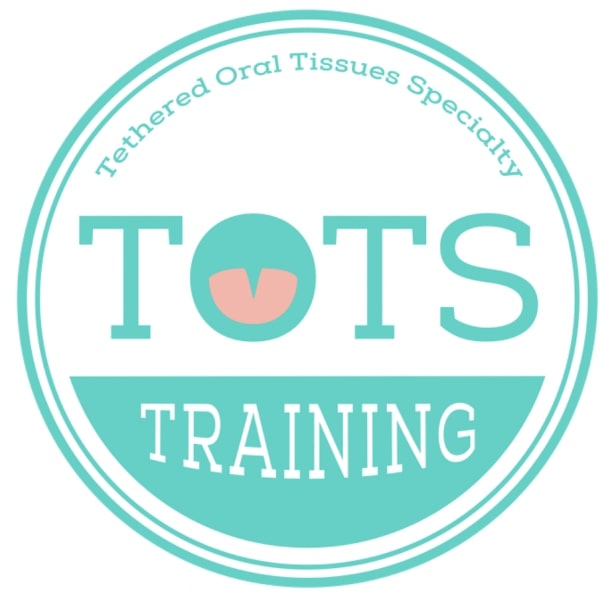Welcoming Patients from Dubuque, Davenport, Dyersville, IA, Nearby Wisconsin and Galena, IL
Infant Tongue Ties and Lip Ties
Tongue ties and lip ties in infants can cause difficulties with both breastfeeding and bottle feeding. When the frenum tissue bands of the lip or tongue are tethered too tightly, the lip and tongue cannot function properly. A lip tie prevents the lip from flanging properly during the latch. When the tongue is limited in extension, elevation, and cupping, then the latch is shallow. A shallow latch often causes poor feeding and possible pain for the mother. However, there are many different signs and symptoms of tongue ties and lip ties, as it can present differently for various breastfeeding and bottle-feeding dyads.
Symptoms of Tongue Ties and Lip Ties in infants:
- poor latch
- slides off nipple frequently, pops on and off when latching
- falls asleep prematurely during feeding
- colic, gas symptoms
- reflux symptoms
- poor weight gain
- very frequent or continuous feeding sessions
- gumming or chewing of the nipple
- clicking sound while sucking/feeding
- unable to take a pacifier or bottle
- upper lip curled under while latched
- upper or lower lip does not flange
- milk runs out the side of the mouth while latched


A breastfeeding mother’s symptoms may include:
- creased, cracked, bruised, blistered or bleeding nipples
- severe pain when baby latches and/or throughout feeding
- poor or incomplete breast drainage
- infected nipples or breasts
- plugged ducts
- mastitis
- nipple thrush
- low milk supply
- frustration/disappointment with breastfeeding
Some babies can have tethered oral tissues and not be symptomatic, such as when mom’s more than adequate milk supply masks the baby’s limited function. If the ties are severe, however, it is important to evaluate how these can affect future feeding and development and in a situation where mother’s milk supply might change.
Dr. Kristen Berning recommends that all mothers who are breastfeeding to work closely with an International Board Certified Lactation Consultant (IBCLC). For IBCLC recommendations in Dubuque and the Tri-State area, please contact our office 563-556-2711.
What is a frenectomy/ frenotomy?
A frenectomy or frenotomy is a procedure used to correct a congenital condition in which a frenum is too tight, causing limited function. Different techniques can be used, with the most common being a scissors or a laser to release the restrictive tissue attachment. The procedure can be done by a medical professional such as a dentist or physician who has specialized training in the procedure. The release of tethered oral tissues may help to restore anatomy, function, and/or possibly prevent commonly associated future problems.
Infant frenectomy procedure in our office
In general, the procedure is well tolerated by children. No sedation is used. After the topical anesthetic is placed, the baby is swaddled, eye protection put on, placed in our dental chair, and stabilized by dental assistants. Dr. Kristen Berning uses a LightScalpel CO2 laser to release the tight tissue attachments. After the laser procedure is completed, the baby is brought to the parent(s) immediately, and mom is encouraged to nurse (if breastfeeding) or bottle feed.

What is aftercare?
To help assure the best possible healing result, Dr. Kristen Berning will provide specific aftercare instructions to parents. Aftercare helps with tissue healing and tongue retraining to improve function. For a breastfeeding infant and mother, it is recommended to return to an IBCLC (International Board Certified Lactation Consultant) for follow-up guidance for breastfeeding support. For a bottlefed baby, it is recommended to seek professional care from a speech language pathologist/therapist (SLP) or occupational therapist (OT) who has advanced training in infant feeding. Additionally, myofunctional therapists can be valuable in these specialized situations to help an infant relearn proper feeding, swallowing and oral function.
Where did Dr. Kristen Berning get her training for infant tongue tie and lip ties?
Dr. Kristen Berning provides this treatment, after experiencing her own challenges breastfeeding her babies. She was then motivated to learn much more about tongue ties and lip ties, in order to help moms and babies in her community and beyond. She has attended tongue tie courses by Dr. Larry Kotlow (pediatric dentist), Dr. Bobby Ghaheri (ENT physician), Dr. Soroush Zaghi (ENT physician), Dr. Richard Baxter (pediatric dentist), and Autumn Henning MS, CCC-SLP, COM, IBCLC. She has also received training from Dr. Fred Margolis (pediatric dentist) and Dr. Alison Hazelbaker, PhD, IBCLC. She has done extensive reading on the subject and stays up to date with current tongue tie research and practices.

Please contact our Dubuque laser dentist today by calling 563-556-2711 or complete the form on this page to request your child's tongue tie or lip tie consultation. In addition to infants, the laser tongue tie or lip tie release procedure can be performed on children and adults. Exceptional Dentistry serves Iowa communities such as Dyersville, Davenport, Cedar Rapids, Iowa City, Waterloo, Cedar Falls as well as visitors from southwest Wisconsin and northwest Illinois.

See What Our Patients Are Saying
"Wonderful experience, I had to get my son’s lip and tongue tie revised. Dr. Berning explained everything very well and went over the exercises thoroughly. All the staff we nice and helpful."
-Abigail Williams

